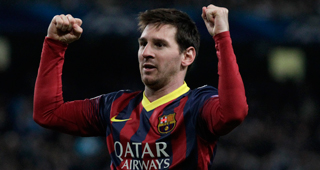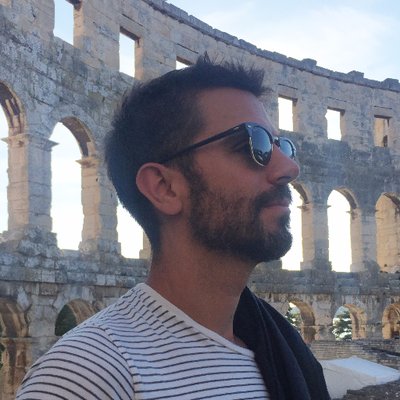Managers: Argentina (Alejandro Sabella), Bosnia and Herzegovina (Safet Sušić), Nigeria (Stephen Keshi), Iran (Carlos Queiroz) Schedule: June 15: Argentina vs. Bosnia and Herzegovina June 16: Iran vs. Nigeria June 21: Argentina vs. Iran June 25: Nigeria vs. Argentina June 25: Bosnia and Herzegovina vs. Iran Group Summary: Argentina received one of the most favorable draws in the entire tournament and will be able to advance whole and untested. Bosnia and Herzegovina, Nigeria and Iran would be third or fourth place picks in many of the other groups, so these countries are playing for second place on an entirely different level than La Albiceleste. Argentina's first match is at the Maracanã and they very well will be returning on July 13th. The Success of Each Team Will Be Defined By: Argentina: Getting the knockout stage monkey off their back and bestowing the world that dream all-South American final against Brazil Bosnia and Herzegovina: Converting the chances undoubtedly created by Miralem Pjanić linking win Edin Džeko Nigeria: Vincent Enyeama keeping matches close to give their counter a chance Iran: Not getting flat out run off the pitch by the entire group An attacking unit featuring Lionel Messi, Sergio Agüero and Gonzalo Higuaín with Ángel di María as a manic two-way wing is somehow entering the World Cup a little further under the radar than expected or what they merit. The 2010 World Cup is remembered for Messi's struggles in a system Diego Maradona created that didn't play to his strengths, but they still reached the quarterfinals before being taken down by Germany. Messi has fewer miles on his legs coming out of a frustrating season at Barcelona that remained remarkably productive despite fears he had slipped and lost interest. Dropping Messi back as a No. 10 will allow him to be more of a playmaker, creator and should allow him to slalom as a dribbler to carve up opposing defenses that produces the transcendent runs that remind you of Maradona. Like Messi, Agüero can also score off the dribble but with more physicality. Higuaín had 22 goals and 11 assists in 37 appearances after his move from Real Madrid to Napoli, and gives Argentina a capable finisher to target in the air. Di María has one of the most remarkable work rates of any star player in the world. He covers a tremendous amount of ground and his presence up and down the left flank will allow Argentina to mostly get away with playing so many attacking players the same way he does behind Real Madrid’s BBC of Bale, Benzema and Cristiano. Messi, Agüero and Higuaín have too much goal scoring quality not to eventually breakthrough, but Di María is the key to holding up the vulnerable middle and back third of the field. Beyond Pablo Zabaleta of Manchester City, Argentina has a thin deck in their back four, which is compounded by Sergio Romero in goal. Romero couldn’t get onto the field this past season at AS Monaco and is a clear liability for a squad with this much attacking talent and aspirations to win the entire tournament. Without many clean sheets with a defending unit capable of being ransacked by merely the average squads in their group, Argentina will be playing a risky game looking to run up the score once they arrive to the knockout stage. Messi and Agüero each won Golden Boots at the Under-20 World Cups in 2005 and 2007, respectively, in which Argentina began to show that this would be a special generation. Argentina was the top ranked country in the world for a good stretch between 2007 and 2008 with all of that young talent, but 2014 could already be their last best opportunity to win a World Cup as they begin to age out of their collective primes. Edin Džeko, Miralem Pjanić and Emir Spahić headline a Bosnia and Herzegovina side making their World Cup debut. Džeko had a highly productive season for Man City with the size and athleticism to get his way to goal as one of the best finishers in the Premier League. Džeko is also underrated as a passer, which figures to be useful given how he’ll be the center of defensive attention. Pjanić was part of the reason why Roma couldn’t find time for Michael Bradley and his ability to do everything at a tremendously high level in the midfield will be critical in setting up Bosnia’s attack. Pjanić is one of the most preternaturally talented and imaginative passers in the entire World Cup, while he can also dribble his way forward with great quality. Bosnia’s goals will have Pjanić’s signature on them if you go beyond the GIF of the Džeko header. Bosnia likes to have Spahić move forward from center back as a facilitator, yet he rarely puts himself in a vulnerable position on the counter. Pjanić doesn’t have the same quality to play with in the midfield with Bosnia as he does at Roma, so the presence of Spahić is critical Bosnia doesn’t quite have enough weaponry to go deep, but they would hardly be huge underdogs in the Round of 16 against the Group E winner (likely France or Switzerland) if their attacking talent coalesces. Nigeria enters the World Cup ranked 44th in the world and coming off disappointing results in their past two appearances, but they begin group play with a bit of a rebuilt roster and a capable goalkeeper in Vincent Enyeama. With Argentina and Bosnia sending strong attacks, Enyeama will need to carryover his strong play this past season at Lille. Keshi plays a somewhat conservative set of tactics to keep matches close instead of going heavy on the attack. John Obi Mikel wasn’t a regular at Chelsea this past season as a defensive midfielder, but he was productive when on the pitch and will get to play a creative, attacking role here for Nigeria. The ball will be rolling through Obi Mikel and he will need to rise to the occasion with his high usage in this tournament to setup scoring chances. Emmanuel Emenike is the primary weapon for Nigeria up front, who is pacy and streaky. Ahmed Musa and Viktor Moses are the wingers that will look to get behind the slow defenders of both Argentina and Bosnia. These aren’t the most skilled attacking players, but the speed in which they’re capable of can allow them enough chances to get one through. In a group with two countries that attack with world class talent and a Nigerian team capable of being explosive, Iran’s guarded system is a strong currency to play here. Queiroz will look to do everything within its power to avert goals allowed with any possibility of scoring coming on a random, measured counter-attack. Maybe if Iran had a draw of similarly defensive sides they may be able to con a weaker attack into becoming too aggressive, but it is doubtful they can withstand their three opponents for all 90 minutes apiece. Reza Ghoochannejhad is a YOLO striker brought up in Holland with that mind-set and he gets to play a starring part on the world stage despite being unable to stick with Standard Liège and is now on Charlton Athletic in England’s second division. Gucci empowers himself more than Queiroz would prefer, but there’s no reason to be excessively conservative when you get the opportunity to play with house money.
 RealGM Analysis
RealGM Analysis
Group F: Argentina's Three-Headed Monster Of Goals

Loading comments...


